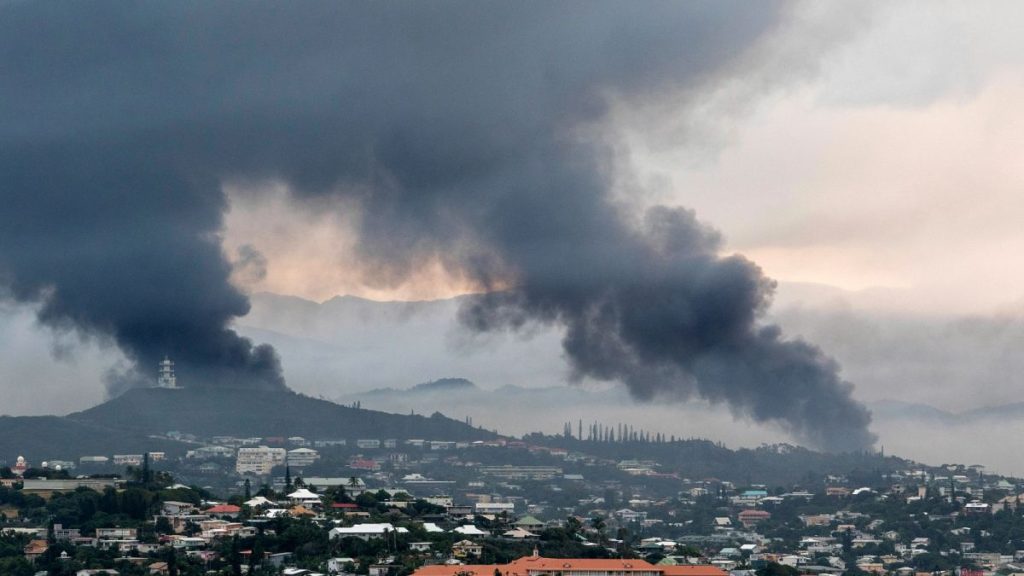The French overseas territory of New Caledonia in the southwest Pacific Ocean has been experiencing violent clashes and looting for more than a week. The unrest stems from a proposed voting system reform by Paris that has sparked opposition and fear among the indigenous Kanak population. The proposed changes to the French Constitution regarding voter lists in New Caledonia have led to concerns that they will favor pro-France politicians and further marginalize the Kanak people. This has reignited tensions on the island, with six people killed, including two police officers, and hundreds injured during recent armed clashes and acts of violence.
French President Emmanuel Macron is scheduled to visit North Caledonia, with Prime Minister Gabriel Attal also expected to travel to the island in the near future. In response to the escalating situation, a state of emergency has been declared on the island, along with a curfew. The airport has been shut down for commercial flights, and neighboring countries such as Australia and New Zealand have evacuated dozens of their citizens from New Caledonia as a precaution. The recent violence and unrest in New Caledonia is seen as a serious threat to stability in the region, prompting the French government to take immediate action to address the situation.
The roots of the current conflict in New Caledonia can be traced back to the history of colonization and the treatment of the Kanak people. The indigenous population of New Caledonia has a long history of suffering from segregation policies and discrimination at the hands of French colonizers. The proposed changes to the voter lists have raised fears among the Kanak people that they will be further marginalized and excluded from political representation. This has led to widespread protests and acts of violence on the island, as tensions between different political factions continue to escalate.
The escalating violence and unrest in New Caledonia have created a humanitarian crisis, with casualties mounting and the security situation deteriorating rapidly. The French government has responded by declaring a state of emergency and enforcing a curfew to restore order on the island. President Macron’s visit to North Caledonia is seen as a crucial step in addressing the grievances of the indigenous population and working towards a peaceful resolution to the conflict. The international community, particularly neighboring countries like Australia and New Zealand, have also played a role in evacuating their citizens and monitoring the situation in New Caledonia to ensure the safety and security of all individuals involved.
The situation in New Caledonia highlights the ongoing challenges of decolonization and self-determination faced by indigenous populations around the world. The conflict over the proposed voting system reform is emblematic of the larger struggle for political representation and recognition of indigenous rights. The violence and unrest in New Caledonia serve as a stark reminder of the legacy of colonization and the continued impact it has on indigenous communities today. The French government’s response to the crisis will be crucial in determining the future of New Caledonia and its indigenous population, as well as in addressing the root causes of the conflict and working towards a lasting solution that promotes peace and stability in the region.
In conclusion, the situation in New Caledonia is a complex and volatile mix of political, social, and historical factors that have culminated in violent clashes and unrest on the island. The French government’s proposed voting system reform has reignited tensions between different political factions and raised fears among the indigenous Kanak population. The declaration of a state of emergency and the deployment of security forces are attempts to restore order and prevent further violence. International support and assistance have been crucial in ensuring the safety of all individuals involved in the conflict. President Macron’s visit to North Caledonia represents a significant opportunity to address the grievances of the indigenous population and work towards a peaceful resolution of the crisis. The events unfolding in New Caledonia highlight the ongoing challenges of decolonization and the need for a inclusive and equitable political system that protects the rights and interests of all communities on the island.


